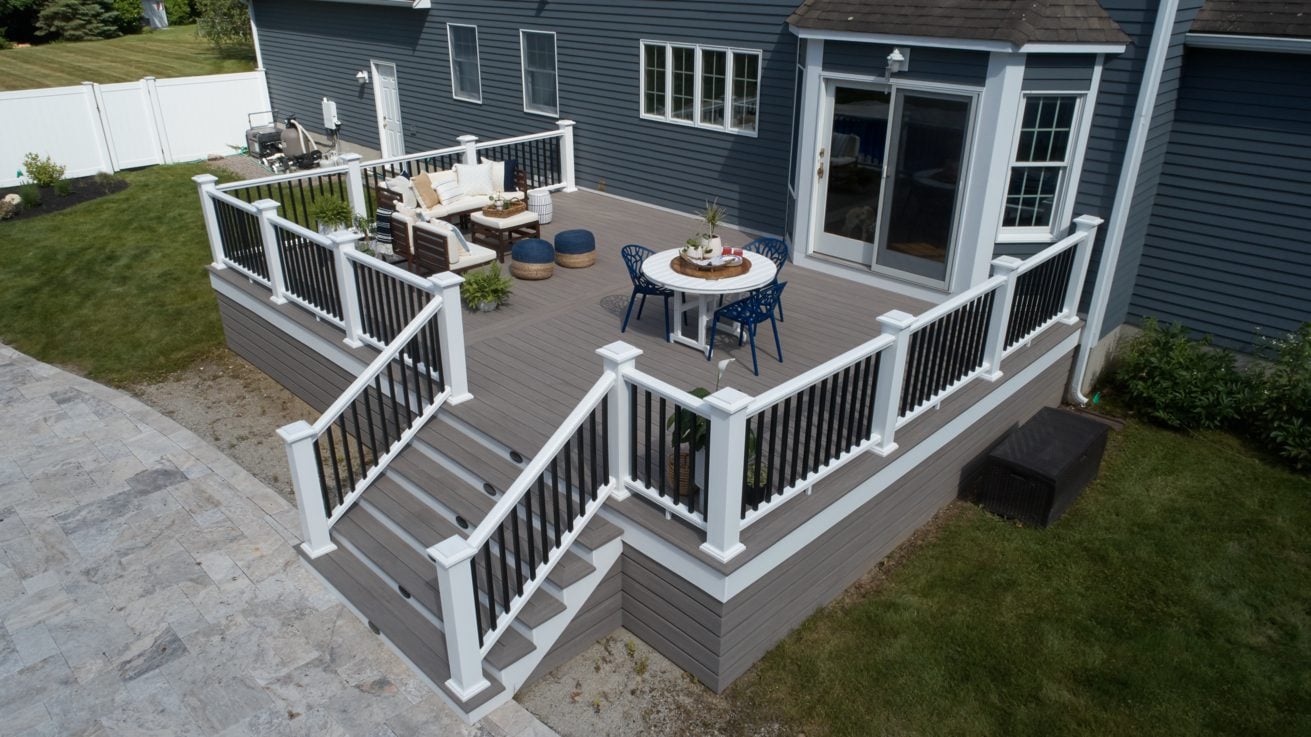When it comes to choosing decking material for your outdoor space, PVC (polyvinyl chloride) decks have become a popular option. But like any material, it has its advantages and disadvantages. Let’s delve into the pros and cons of PVC decks to help you make an informed decision.
Pros of PVC Decks
- Durability and Longevity: One of the most significant benefits of PVC decks is their durability. They are highly resistant to rot, decay, and insect infestations, making them last longer than traditional wood decks.
- Low Maintenance: PVC decks require minimal upkeep. They don’t need staining, painting, or sealing, and are easy to clean with just soap and water. This can save you both time and money in the long run.
- Aesthetically Pleasing: PVC decking comes in a variety of colors and textures, some of which mimic the look of natural wood. This allows homeowners to choose a style that best fits their home and landscape.
- Water Resistance: PVC is completely water-resistant, making it an excellent choice for areas that are prone to moisture, like pool sides or coastal regions.
- Splinter and Warp Resistant: Unlike wood, PVC doesn’t splinter or warp, which makes it safer, especially for households with children and pets.
Cons of PVC Decks
- Cost: One of the biggest drawbacks of PVC decking is its cost. It is generally more expensive upfront than traditional wood or composite materials.
- Temperature Sensitivity: PVC decks can become quite hot underfoot in direct sunlight and can also expand and contract with temperature changes, which may require additional considerations during installation.
- Environmental Concerns: Since PVC is a type of plastic, it’s not as eco-friendly as natural wood or some composite materials. It’s not biodegradable and recycling options are limited. The TimberTech decking that we sell is made in the USA from approximately 60% recycled material, including post-construction scrap like vinyl siding and trim, TimberTech Advanced PVC decking is a sustainable option. Plus, it’s fully recyclable at the end of its useful life.
- Less Natural Look: While PVC can mimic the look of wood, it still lacks the natural warmth and feel of real timber, which may be a downside for some homeowners.
- Potential for Fading: Over time, PVC decks can fade due to prolonged exposure to the sun. This color change can be uneven, depending on the deck’s exposure to the elements.
Conclusion
In conclusion, PVC decks offer a durable, low-maintenance option for homeowners, but they come at a higher cost and with some environmental considerations. When choosing decking material, it’s essential to weigh these factors against your personal preferences and needs. Whether PVC decking is right for you will depend on your budget, aesthetic preferences, and environmental priorities.
